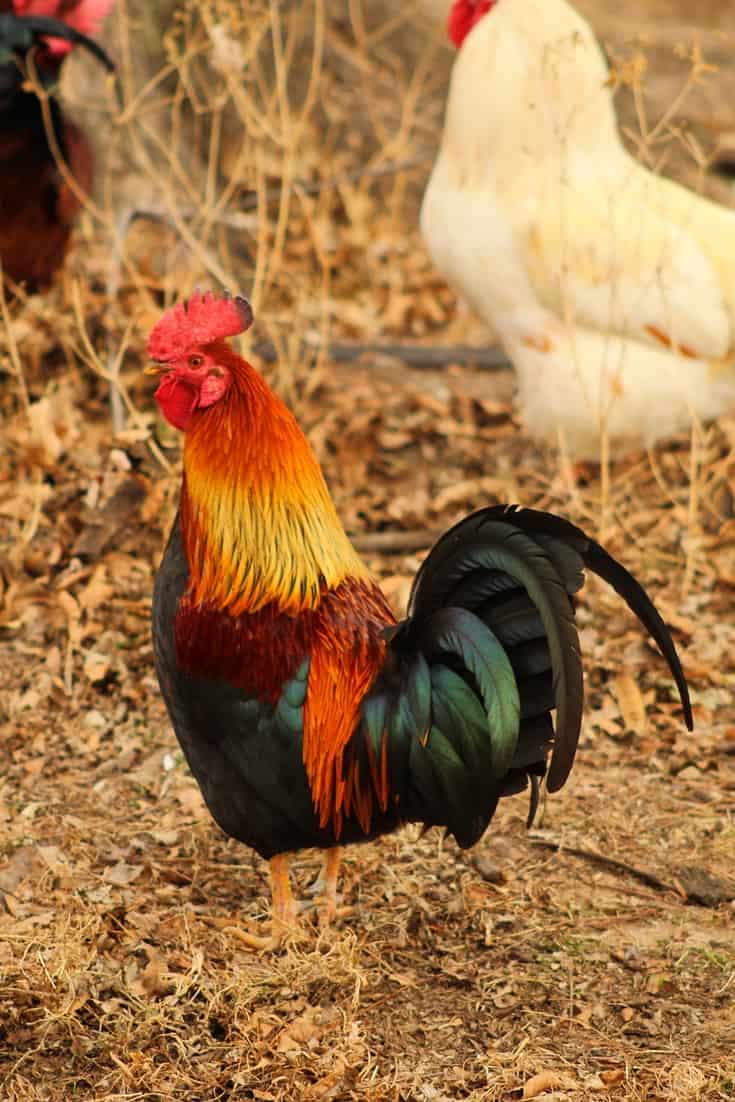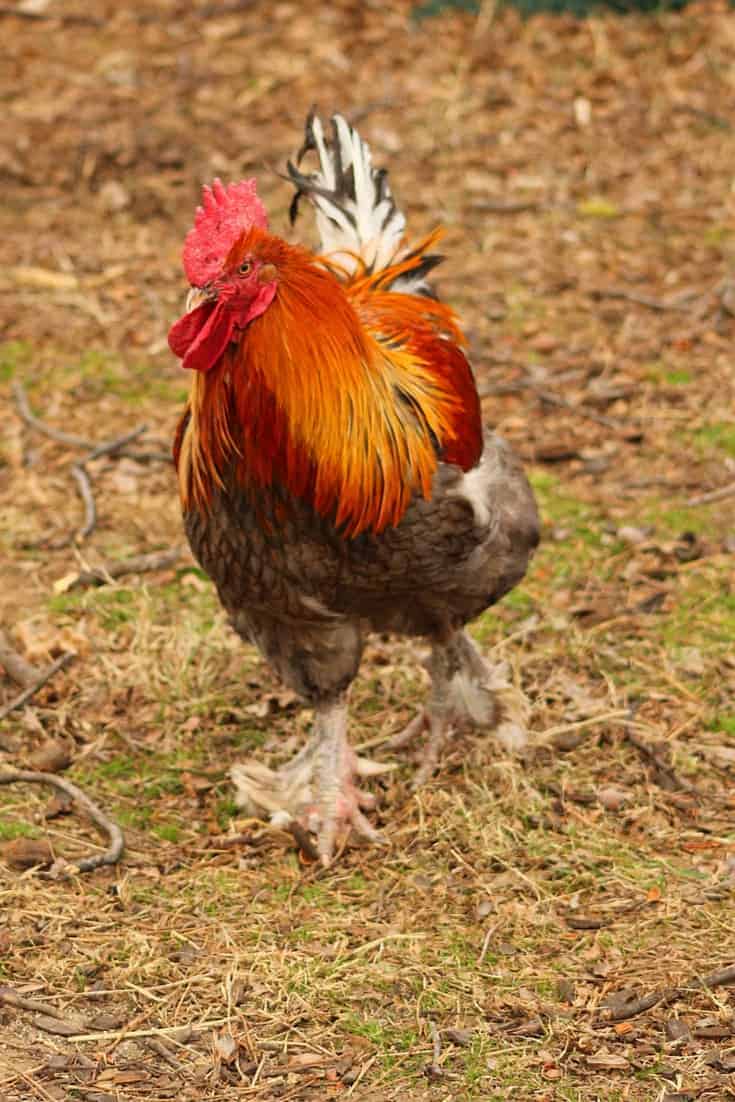Will Chickens Lay Eggs Without A Rooster? The Ultimate Guide
Chickens are incredible creatures capable of producing eggs consistently, but many people wonder if they need a rooster for this process. The short answer is no—hens can lay eggs without a rooster. However, there's much more to this topic than meets the eye. Understanding the biology and behavior of chickens is key to optimizing egg production and ensuring the well-being of your flock.
If you're considering raising chickens for eggs, whether for personal consumption or commercial purposes, knowing the role of roosters is essential. This article will explore the science behind egg-laying in chickens, the differences between fertilized and unfertilized eggs, and how to maximize egg production without a rooster.
By the end of this guide, you'll have a comprehensive understanding of the egg-laying process and the role of roosters in your flock. Let's dive in!
Read also:Whats Hulk Hogans Real Name A Comprehensive Guide To The Wrestling Legend
Table of Contents
- Understanding the Biological Process of Egg-Laying
- The Role of a Rooster in Egg Production
- Fertilized vs. Unfertilized Eggs: What’s the Difference?
- Benefits of Raising Chickens Without a Rooster
- Challenges of Not Having a Rooster
- Choosing the Right Chicken Breed for Egg Production
- Nutrition and Care for Maximum Egg Production
- Common Myths About Chickens and Egg-Laying
- Tips for Success Without a Rooster
- Conclusion: Will Chickens Lay Eggs Without a Rooster?
Understanding the Biological Process of Egg-Laying
Chickens are natural egg-layers, and the biological process behind it is fascinating. A hen's reproductive system is designed to produce eggs consistently, regardless of whether a rooster is present. The egg-laying process begins in the ovary, where the yolk develops and eventually moves to the oviduct.
As the egg travels through the oviduct, it picks up the albumen (egg white), shell membranes, and finally, the shell itself. This entire process takes about 25-26 hours, after which the egg is laid. Without a rooster, the egg will remain unfertilized, meaning it cannot develop into a chick.
Key Facts:
- Hens begin laying eggs at around 18-24 weeks of age.
- A healthy hen can lay an egg almost every day.
- The quality and quantity of eggs depend on factors like nutrition, age, and breed.
How Does the Reproductive System Work?
The reproductive system of a chicken is highly efficient. A hen has only one functional ovary, located on the left side. This ovary produces yolks that travel through the oviduct, where the rest of the egg forms. Even without a rooster, this process continues uninterrupted.
The Role of a Rooster in Egg Production
Many people mistakenly believe that a rooster is necessary for hens to lay eggs. In reality, a rooster's primary role is to fertilize eggs, not to initiate the egg-laying process. While hens can lay eggs without a rooster, the presence of a rooster can lead to the production of fertilized eggs, which can hatch into chicks under the right conditions.
Roosters also provide protection and leadership within a flock, ensuring the safety of hens from predators and maintaining order. However, not all chicken keepers want to deal with the noise or aggression that some roosters exhibit, making it a personal choice whether to include one in your flock.
Read also:Britt Robertson Tv Show A Comprehensive Guide To Her Stellar Career
Do You Need a Rooster for Eggs?
The short answer is no. Hens will lay eggs whether or not a rooster is present. However, if your goal is to hatch chicks, a rooster is necessary to fertilize the eggs. If you're raising chickens solely for eggs, you can skip the rooster and focus on optimizing your hens' health and environment.
Fertilized vs. Unfertilized Eggs: What’s the Difference?
One of the most common questions about chicken egg-laying is the difference between fertilized and unfertilized eggs. Both types are nutritionally identical, but only fertilized eggs have the potential to develop into chicks.
Fertilized Eggs:
- Produced when a rooster mates with a hen.
- Contain a developing embryo if incubated under proper conditions.
- Often preferred by those looking to expand their flock.
Unfertilized Eggs:
- Laid by hens without the presence of a rooster.
- Cannot develop into chicks.
- Perfect for consumption and widely consumed worldwide.
Which Type of Egg Should You Choose?
The type of egg you choose depends on your goals. If you're raising chickens for eggs only, unfertilized eggs are ideal. They are just as nutritious as fertilized eggs and do not require the presence of a rooster. On the other hand, if you're interested in breeding chickens, fertilized eggs are necessary.
Benefits of Raising Chickens Without a Rooster
Raising chickens without a rooster offers several advantages, especially for those who want a peaceful and manageable flock. Below are some of the key benefits:
- Less Noise: Roosters are known for their loud crowing, which can be disruptive, especially in urban or suburban areas.
- Reduced Aggression: Some roosters can become aggressive, posing a risk to both humans and other chickens.
- Simplified Flock Management: Managing a flock without a rooster can be easier, as there is no need to worry about mating behavior or territorial disputes.
- Legal Restrictions: Many municipalities have laws against keeping roosters due to noise complaints, making hen-only flocks a better option.
Peaceful Coexistence Without a Rooster
Hens can live harmoniously without a rooster, forming a social hierarchy among themselves. This hierarchy, known as the pecking order, ensures that each hen knows her place in the flock, reducing conflict and promoting a peaceful environment.
Challenges of Not Having a Rooster
While raising chickens without a rooster has its advantages, there are also some challenges to consider:
- No Fertilized Eggs: If you're interested in breeding chickens, you'll need a rooster to fertilize the eggs.
- Predator Protection: Roosters provide an extra layer of protection against predators, which may need to be compensated for in a hen-only flock.
- Leadership Vacuum: Without a rooster, the hens may take longer to establish a stable pecking order, potentially leading to increased stress or conflict.
How to Address These Challenges
To overcome these challenges, consider implementing strategies such as providing additional security measures, ensuring a stable environment, and monitoring the flock closely to prevent conflicts.
Choosing the Right Chicken Breed for Egg Production
When raising chickens for eggs, selecting the right breed is crucial. Different breeds have varying levels of egg production, temperament, and adaptability to different climates. Below are some of the best egg-laying breeds:
- White Leghorn: Known for their high egg production, White Leghorns can lay up to 300 eggs per year.
- Golden Comet: These hybrid chickens are excellent layers, producing large brown eggs.
- Ameraucana: Famous for their blue eggs, Ameraucanas are a popular choice for their unique egg color and hardy nature.
Factors to Consider When Choosing a Breed
When selecting a breed, consider factors such as climate suitability, temperament, and egg-laying frequency. Researching each breed's characteristics will help you choose the best fit for your flock.
Nutrition and Care for Maximum Egg Production
Proper nutrition and care are essential for maximizing egg production in hens. A balanced diet rich in protein, calcium, and essential vitamins is key to maintaining healthy egg-laying hens.
Key Nutritional Requirements:
- Protein: Essential for egg production and overall health.
- Calcium: Vital for strong eggshells.
- Vitamins and Minerals: Necessary for optimal health and egg quality.
Best Practices for Hen Care
In addition to proper nutrition, hens require a clean and comfortable living environment. Regular cleaning of coops, access to fresh water, and protection from extreme weather conditions are all important factors in ensuring maximum egg production.
Common Myths About Chickens and Egg-Laying
There are several myths surrounding chickens and egg-laying that can lead to confusion. Below are some of the most common myths debunked:
- Myth 1: Hens need a rooster to lay eggs. False—hens can lay eggs without a rooster.
- Myth 2: Fertilized eggs are more nutritious. False—both fertilized and unfertilized eggs are equally nutritious.
- Myth 3: All hens lay eggs daily. False—egg-laying frequency depends on factors like age, breed, and health.
Why Understanding Myths Matters
Dispelling common myths about chickens and egg-laying can help you make informed decisions about raising chickens. Understanding the facts will ensure you provide the best care for your flock and achieve your egg production goals.
Tips for Success Without a Rooster
To ensure your hens thrive without a rooster, follow these tips:
- Provide a Balanced Diet: Ensure your hens receive adequate nutrition to support egg production.
- Maintain a Clean Environment: Regularly clean coops and nesting boxes to prevent disease and stress.
- Monitor Health: Keep an eye on your hens' health and address any issues promptly.
- Offer Protection: Implement measures to protect your flock from predators.
Maximizing Egg Production
By following these tips, you can create an optimal environment for your hens to lay eggs consistently and healthily. Remember, a well-cared-for flock is more likely to produce high-quality eggs.
Conclusion: Will Chickens Lay Eggs Without a Rooster?
In conclusion, chickens can and will lay eggs without a rooster. The presence of a rooster is only necessary for fertilizing eggs, not for initiating the egg-laying process. By understanding the biology and behavior of chickens, you can optimize egg production and ensure the well-being of your flock.
We encourage you to share your experiences with raising chickens and egg-laying in the comments below. Additionally, feel free to explore other articles on our site for more information on chicken care and egg production. Together, let's create a thriving environment for our feathered friends!
References:


